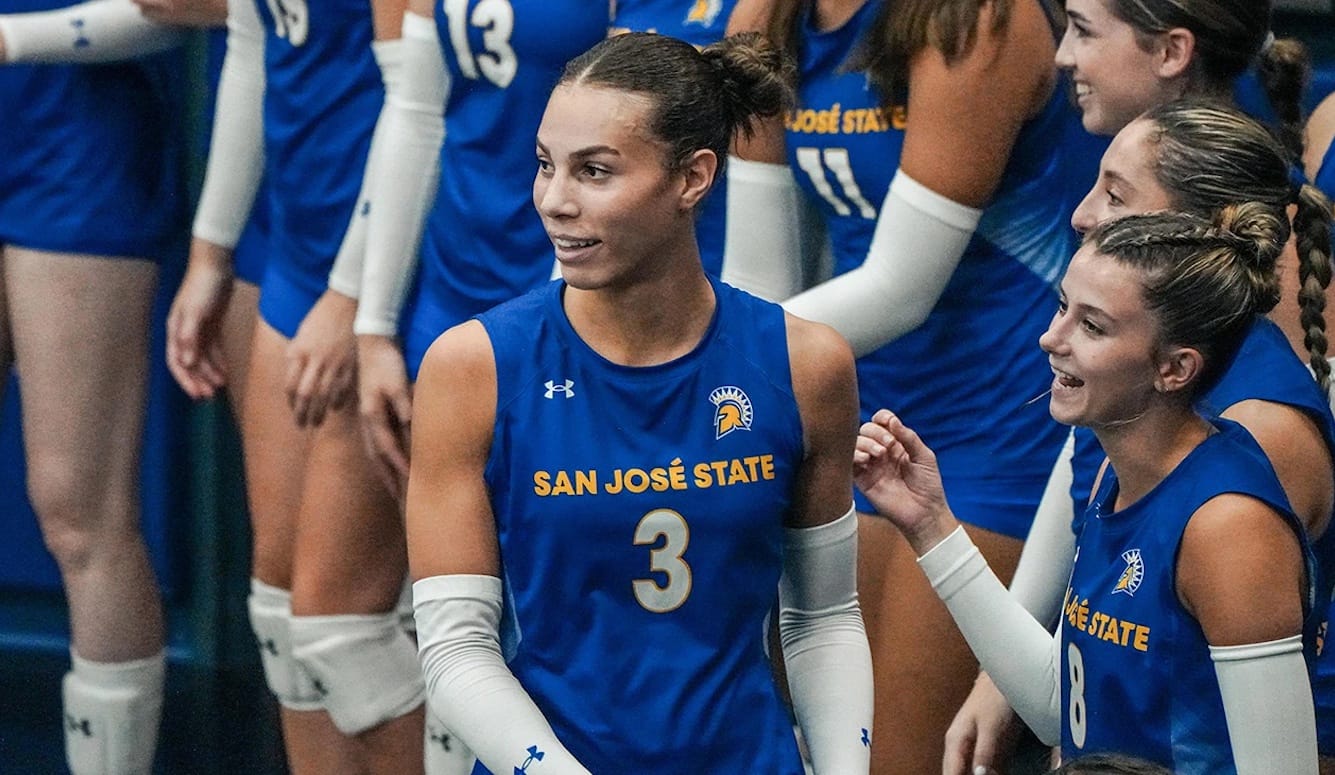Sport
College Volleyball’s Spartan Meltdown
In a scathing Title IX Complaint obtained by Quillette, a San José State University women’s volleyball coach explains how her school’s aggressively enforced transgender-inclusion policy created a toxic environment for female athletes.

On 26 October, the University of Nevada, Reno (UNR) Division I women’s volleyball team was scheduled to host a Mountain West Conference match against the San José State University (SJSU) Spartans. It was a game that everyone knew would never take place, because UNR’s players had publicly declared they wouldn’t be showing up—notwithstanding the stubborn insistence of UNR officials that the university “intend[ed] to move forward with the match as scheduled.”
When it became clear that UNR would be required to pay the Spartans’ travel costs if UNR forfeited the match on game day—as everyone knew they would—the location of the (by now, completely imaginary) match was changed to the Spartan Gym in San Jose, California. But of course, when game time arrived, that gym was empty—as everyone knew it would be—because members of the UNR team were busy conducting a press conference explaining why they’d stayed home. And the whole farce concluded with SJSU winning by forfeit.
The @NevadaWVB volleyball team was supposed to play @SanJoseStateVB today. SJSU has a man on their team.
— Riley Gaines (@Riley_Gaines_) October 26, 2024
Instead of playing, they held a press conference during game time and shared why they're holding the line. Major kudos to their bravery & leadership👏🏼👏🏼👏🏼 #BOYcott pic.twitter.com/x4u14dhXZA
This is the fifth women’s volleyball team whose players have chosen to forfeit against SJSU this season—all for the same reason—which is described in a media statement put out by members of the UNR squad:
We, the University of Nevada Reno women’s volleyball team, forfeit against San José State University and stand united in solidarity with the volleyball teams of Southern Utah University, Boise State University, the University of Wyoming, and Utah State University. We demand that our right to safety and fair competition on the court be upheld. We refuse to participate in any match that advances injustice against female athletes.





